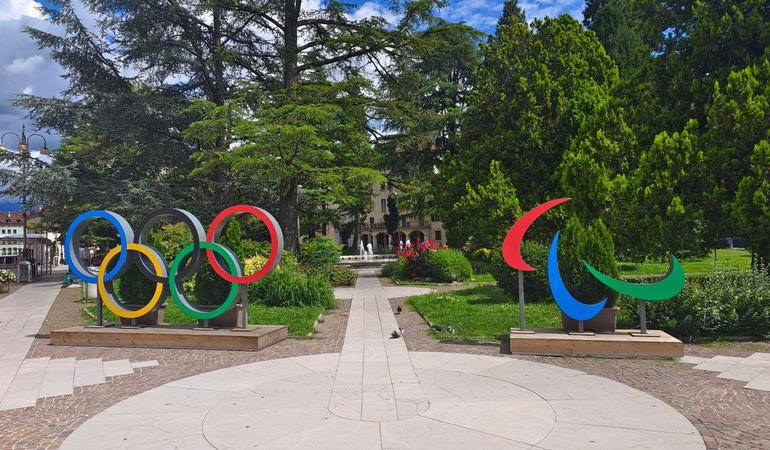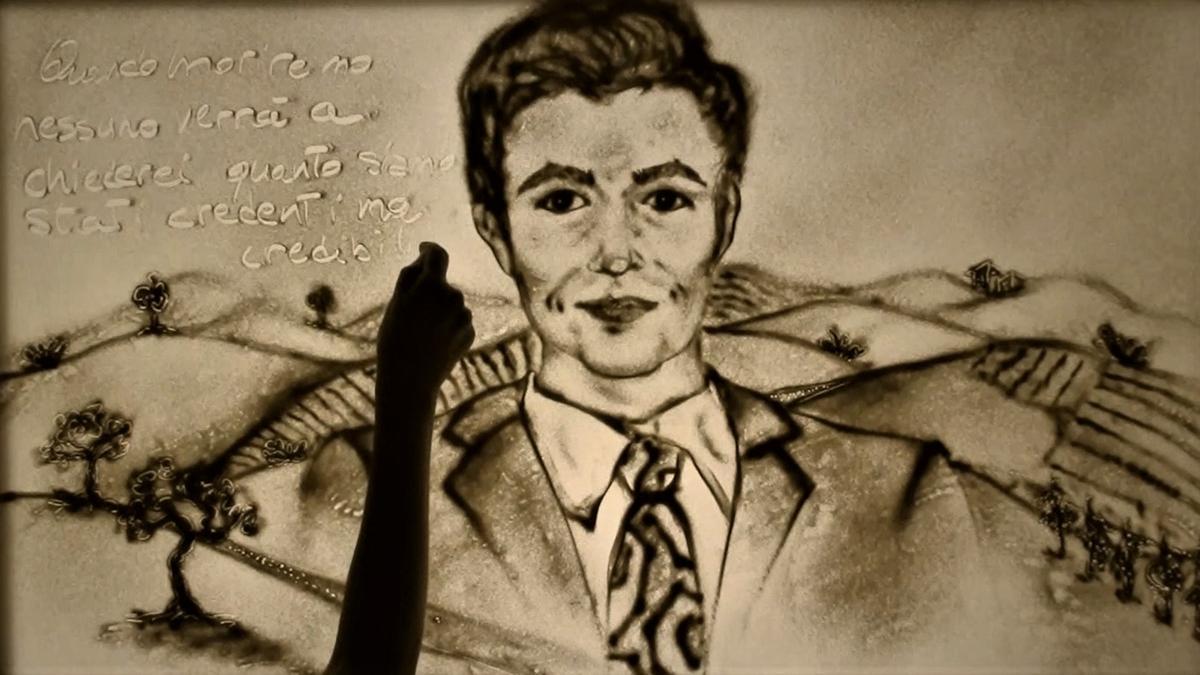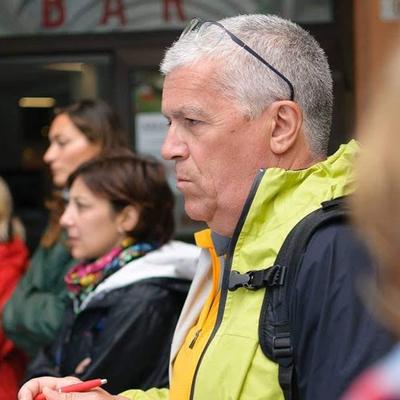
Milano-Cortina. Ecco come verranno spesi i 450 milioni di euro delle paralimpiadi



6 settembre 2024
The old diehard mafioso and the courageous woman who denounces him. It is a present that is still tied to the past that of Canicattì, the inland Sicilian town where Rosario Livatino, the blessed judge killed on 21 September 1990, was born. Livatino was murdered by the "Stidda", a criminal organization centered in the central-southern part of Sicily, similar and rival to the more famous Cosa nostra. The murder was planned by a criminal group to which Antonio Maira belonged, whom the magistrate himself had sentenced in 1986 to over 22 years in prison for drug trafficking, robbery, and possession of weapons.
A very harsh sentence which, according to some collaborators of justice, led to the decision to eliminate Livatino. On 9 July 2024, Maira, now 74, was arrested for extortion aggravated by the mafia method together with his nephew Antonio La Marca, 34, and Giovanni Turco, 24. "You can only resign from the Mafia with death," said the judge, who spoke and practiced mercy even towards criminals, knew the reality of the Mafia and dealt with it effectively, so much so that he was an enemy to be put down.
Read the original article in Italian
The Stidda, a Sicilian criminal organization, was opposed to Cosa Nostra in the 1980s
In these parts, the mafia still claims to rule with violence, the same violence that the 'little judge' fought and decided his death. The antimafia public prosecutors' office suspects that Stidda has decided to reinforce its activities throughout the Agrigento area. Maira is the symbol of a land that does not want to change. After serving 17 years in prison and being set free in 2004, he immediately started offending again. And not even the death of his son, killed by the rival clan in the course of the war between the stidda and Cosa Nostra, made him give up.
In December 2019, Maira had been arrested with his brother for usury, as part of the investigation conducted by the Agrigento public prosecutor's office, the mobile squad of the police and the carabinieri in Canicattì. The victims were small local entrepreneurs in difficulty, forced to pay an interest rate of 120 per cent per year. Three years ago, again together with his brother, his name had again ended up in the investigators' files, again for a story of usury and mafia, with the police seizing five flats and their appurtenances, three warehouses, 19 bank/financial relations and a suv.
A respectable criminal record, according to police documents. "A leading figure in the criminal panorama of the province of Agrigento. A mafioso ante litteram, he was already a militant member of the stidda, a clan notoriously opposed to Cosa Nostra, in the 1980s, since the cosca had a large and dangerous cell in Canicattì, of which he was a member'.
Maira, we read further, 'on behalf of his paracco (the umbrella, as the stidari call the territorial fringe, ed) dealt with drug trafficking and robberies, was part of a commando that in November 1983 carried out a robbery in an armoury in Favara, where several weapons were stolen, as well as another group of robbers who, in the same period, stole 27 million lire during a robbery carried out at a bank in Palma di Montechiaro, after having immobilised the security guard and taken his gun".
From crime to community: the social reuse of confiscated assets in Italy, Spain and Romania
Returning to the latest arrest, the investigations conducted by the Agrigento mobile squad and the Canicattì police station, coordinated by the Antimafia Public Prosecutors' Office in Palermo, began in April last year, after the door of a warehouse in Canicattì was damaged and set on fire. In particular, it emerged that Maira and the two others arrested, in order to preserve the economic and entrepreneurial interests of a garage owner (Maira's nephew), allegedly forced the extortion victims, a woman and her family, not to rent a warehouse they owned to a person who could have competed with the family garage.
The three allegedly went to the woman's home to emphasise their membership of the stidda, threatening to make her 'look so much' if she ever gave up the warehouse. It was on 24 March 2023 when Maira appeared with the two young accomplices: 'Do you know me? Do you know who I am? Yes yes..in mafia form I am telling you that you must not rent that warehouse..I created that area and I am in charge'.
The woman then replied: 'Yes, of course I know you...Antonio Maira...of course I know him...'. The conversation was recorded by the victims and is significant of Mafia conduct. The conversation continues and the lady's brother also joins in: 'This reason why I don't have to rent it to him what is it?' "You don't have to rent it to him because there's no reason... What the fuck are you shabby? the pumps... we blow up... the property we have to enjoy... the property."
And again: 'Do you know me? What's your problem? Your son doesn't have to rent any...". The man countered, "And why should I not rent any? Are you going to blow me up?" Maira is explicit. "That warehouse should not be rented," he orders, adding that the owners "had to be careful with the cylinders and the petrol", because "whoever takes his bread away from my nephew, I take his life away... do you know me? Do you know who I am? Your son should not rent any'.
A few days later someone set fire to the shutter of the building, but instead of backing down, the woman decided to denounce him. And once again Maira is arrested. In this case, the courage and dignity of humble people who did not look the other way emerge. Simple people, two elderly spouses and their children, who with determination made a significant contribution to the investigation, even going so far as to film their extortionists when they threatened them.
The Anti-Mafia Commission attempts to shed light on the killing of Paolo Borsellino
"They have, that is, taken advantage of the rewarding discipline envisaged for life prisoners to return to act on the territory with the methods they had already tried in the past and have thus revitalised to some extent the stidda itself'Maurizio De Lucia - Chief Prosecutor in Palermo
Recently, the dangerousness of the Agrigento 'stidda' was confirmed by Palermo's chief prosecutor Maurizio de Lucia, who explained in recent months in the parliamentary anti-mafia commission. "For a certain period of time it was thought to have been substantially eradicated, instead today we are recording the new presence of exponents of the old criminal organisation and of new subjects who are approaching the stiddaro phenomenon in order to rebuild an organisation that is in some way in dialogue with Cosa Nostra".
Reinforcing de Lucia's concerns were the arrests in February 2021 of Antonio Gallea, believed to be the head of the Canicattì stiddari and one of the instigators of the Livatino murder, and Santo Rinallo. Both, on 17 April 1990, were sentenced to four years for unlawful carrying and possession of a pistol with an abraded serial number and explosive material by a panel of judges of which Livatino was a member, who was the draftsman of the motivation for the sentence, which was also one of the motives that led the stiddari to commit the murder.
Although lifers, Gallea and Rinallo had managed to obtain semi-freedom, work outside the prison and even do voluntary work. On this point, de Lucia observed how 'some historical members of the organisation returned to carry out activities related to the organisation itself after having obtained the declaration of impossibility of collaboration. They have, that is, taken advantage of the rewarding discipline envisaged for life prisoners to return to act on the territory with the methods they had already tried in the past and have thus revitalised to some extent the stidda itself'.
'The institution of the impossibility of collaboration,' continues de Lucia, 'was used by subjects who could not repent, but enjoyed the possibility of impossible repentance to return to crime. This, to some extent, is to their credit that they were good at getting this thing through, but it is also our fault, in the sense that our investigations were not able to foresee the non-interruption of those contacts with the criminal environment that, as soon as they left, they re-established. The investigations have shown this and this is a sign that leads us to pay particular attention to these institutions'.
La tua donazione ci servirà a mantenere il sito accessibile a tutti
La tua donazione ci servirà a mantenere il sito accessibile a tutti